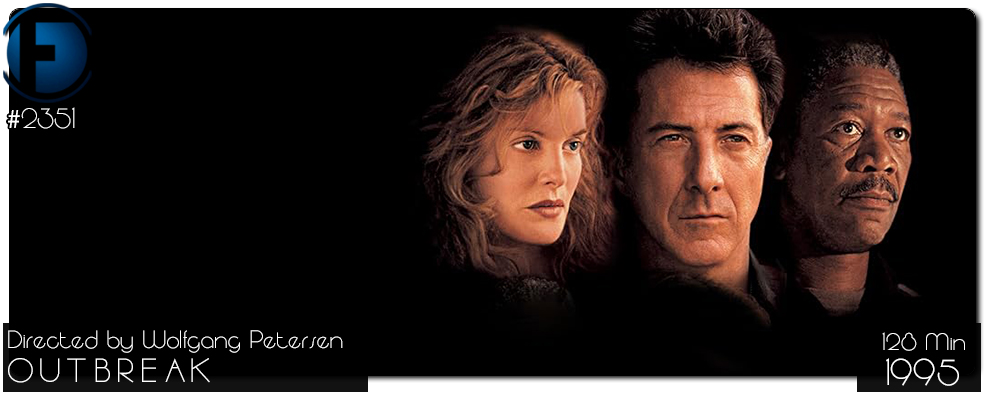Movie Review – Outbreak
Principal Cast : Dustin Hoffman, Rene Russo, Morgan Freeman, Donald Sutherland, Kevin Spacey, Cuba Gooding Jr, Patrick Dempsey, Zakes Mokae, Malick Bowens, Susan Lee Hoffman, Benito Martinez, Bruce Jarchow, Dale Dye, JT Walsh, David AR White.
Synopsis: A team of Army doctors struggle to find a cure for the deadly Motaba virus that was transported from Africa to North America by a white-headed Capuchin monkey and is now spreading quickly throughout a small California town.
********
Released amidst a resurgence of interest in infectious disease narratives, Outbreak, directed by Wolfgang Petersen, emerges as a gripping and prescient thriller that resonates deeply in today’s global context. Set against the backdrop of a fictional outbreak of a deadly virus, the film plunges viewers into a heart-pounding race against time as scientists and military personnel battle to contain and combat the contagion. What elevates Outbreak beyond its genre trappings is its deft blend of high-stakes action, ethical dilemmas, and thought-provoking commentary on the intersection of science, politics, and human nature.
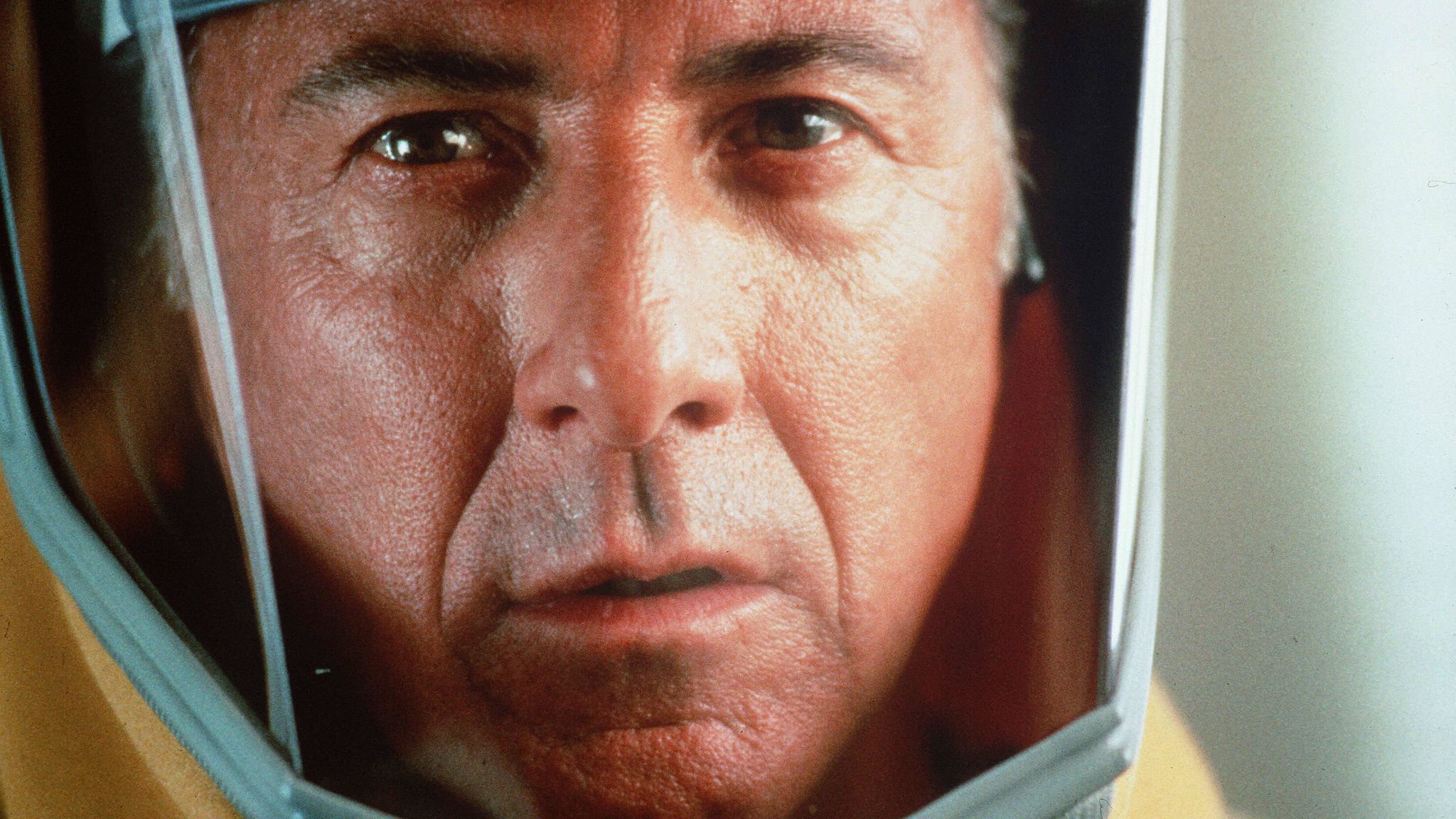
Outbreak follows Colonel Sam Daniels (Dustin Hoffman), a virologist with the US Army Medical Research Institute of Infectious Diseases (USAMRIID), and his team as they race against time to contain a deadly virus outbreak in a small California town. The virus, codenamed Motaba, threatens to spread globally after an infected monkey is illegally smuggled into the US. As Daniels investigates, he clashes with General Billy Ford (Morgan Freeman) over military protocol and the ethics of quarantine. Meanwhile, Daniels’ ex-wife, Dr. Roberta Keough (Rene Russo), leads efforts to find a cure while navigating political intrigue orchestrated by Donald McClintock (Donald Sutherland). As tensions escalate and the virus spreads, Daniels and Keough must confront personal and professional challenges to prevent a pandemic and uncover the truth behind the outbreak’s origin.
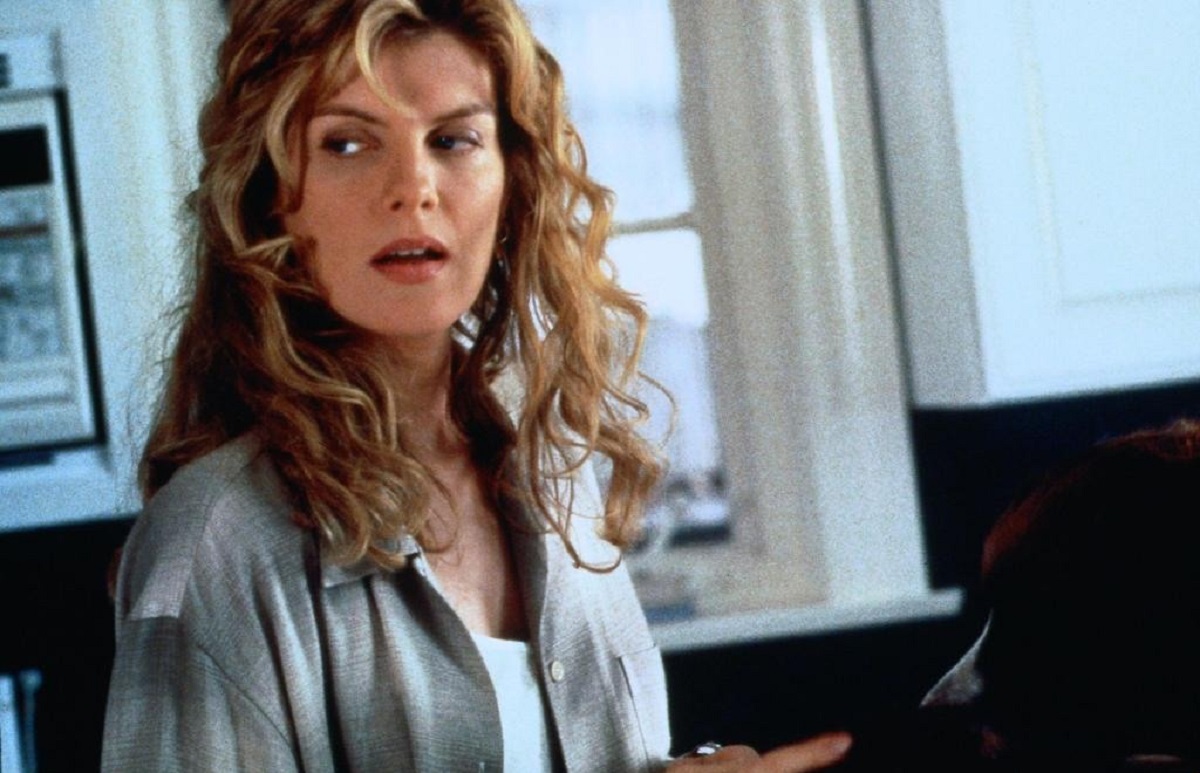
At the heart of Outbreak is Hoffman’s Sam Daniels. As a virologist with the United States Army Medical Research Institute of Infectious Diseases (USAMRIID), Daniels embodies the film’s Everyman moral compass and relentless pursuit of truth in the face of bureaucratic obfuscation. Hoffman’s portrayal is anchored in a steely determination tempered by moments of vulnerability, capturing the toll of battling both a lethal pathogen and the systemic barriers hindering its containment. Opposite Hoffman is Rene Russo as Dr. Roberta Keough, whose intelligence and resolve match Daniels’ own. Russo imbues Keough with a blend of clinical precision and empathetic warmth, grounding the film’s scientific discourse in human emotion. Their dynamic is enriched by a stellar supporting cast including Morgan Freeman as General Billy Ford, whose commanding presence underscores the military’s role in crisis management, and Donald Sutherland as Donald McClintock, a shadowy government operative whose motives blur the line between protection and exploitation.
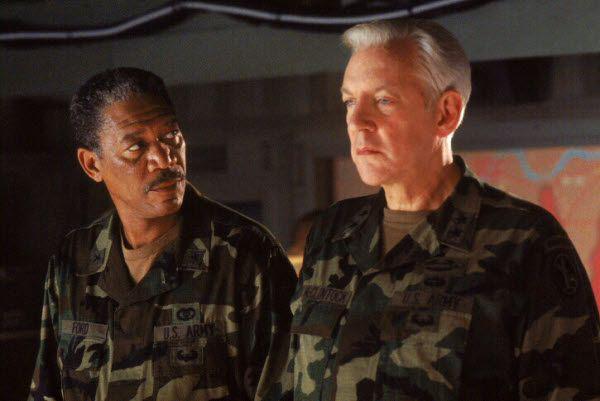
Petersen’s direction navigates the film’s multiple layers with a deft hand, seamlessly weaving together intense action sequences with quieter moments of introspection and ethical debate. From the claustrophobic tension of a quarantine operation to the pulse-pounding urgency of a race against time to find patient zero, Outbreak maintains a relentless pace that keeps viewers on the edge of their seats while prompting deeper reflection on the fragility of global health security. Petersen deftly balances gripping suspense with emotional depth, guiding the film through its intense narrative with precision. His ability to build this tension through dynamic cinematography and tight pacing enhances the urgency of the story, while also fostering nuanced character development amidst the chaos. Petersen’s command of both action sequences and intimate moments allows the audience to fully immerse themselves in the high-stakes world of viral containment, something we’ve all come to appreciate most keenly in a post-Covid world.
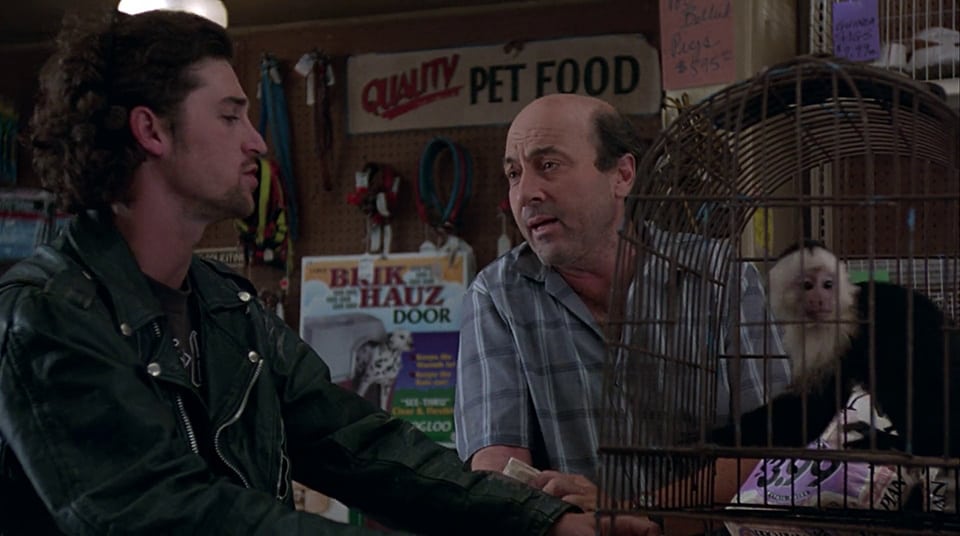
Thematically, Outbreak remains remarkably relevant, its narrative echoing contemporary concerns about pandemics, bioterrorism, and the ethical implications of scientific research. The virus, codenamed Motaba, serves as a potent metaphor for the unseen threats that can upend societies and challenge our collective resilience. The film’s exploration of government responses, media sensationalism, and public panic feels eerily prescient, offering a cautionary tale that resonates in an era of rapid global interconnectedness. Visually, Outbreak is anchored by visceral cinematography that captures both the stark beauty of its California settings and the clinical sterility of its laboratory environments. The use of tight close-ups and sweeping aerial shots enhances the film’s sense of immediacy and scale, reinforcing the magnitude of the crisis unfolding on screen. Accompanied by an evocative score by James Newton Howard, which alternates between haunting melodies and adrenaline-pumping rhythms, Outbreak crafts an immersive auditory experience that heightens the emotional impact of each scene. Howard’s music serves as a narrative thread, underscoring moments of triumph and tragedy alike with a nuanced understanding of the human drama at play.
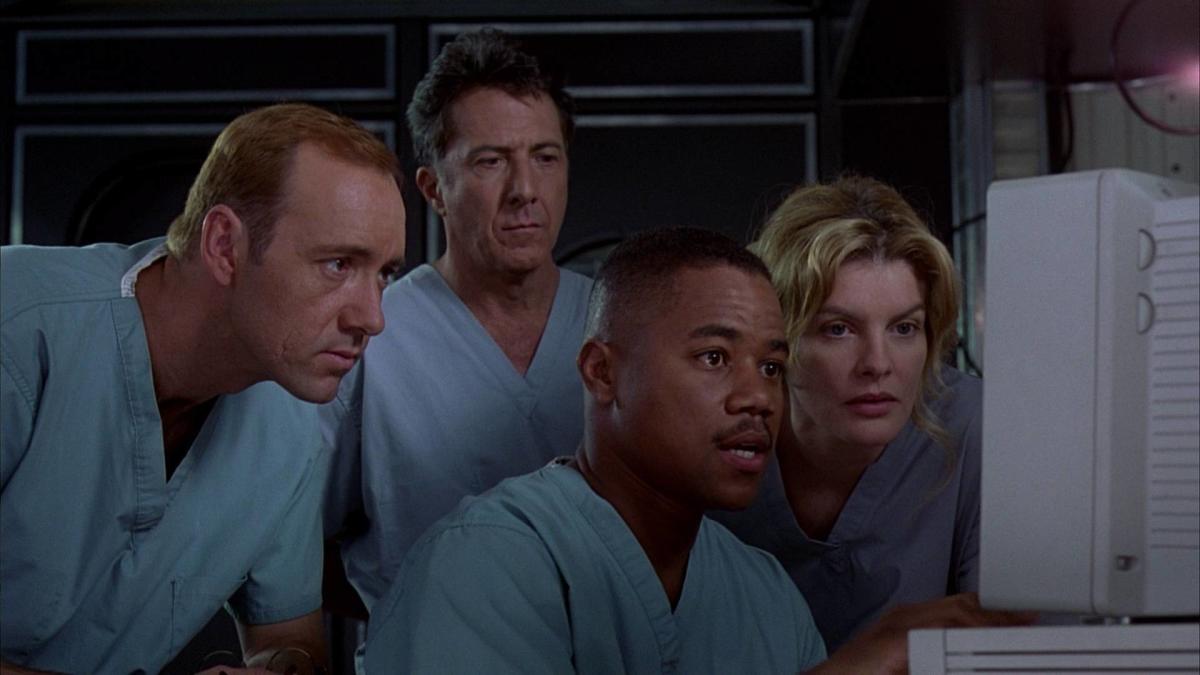
In conclusion, Outbreak stands as a testament to the enduring power of cinema to provoke thought, elicit emotion, and spark dialogue about pressing societal issues. With its stellar performances, taut direction, and timely themes, the film not only entertains but also challenges viewers to consider the implications of scientific advancement and political manoeuvring in the face of global health crises. As we navigate our own uncertain times, Outbreak remains a potent reminder of the fragility of our world and the resilience of the human spirit in the face of adversity.

